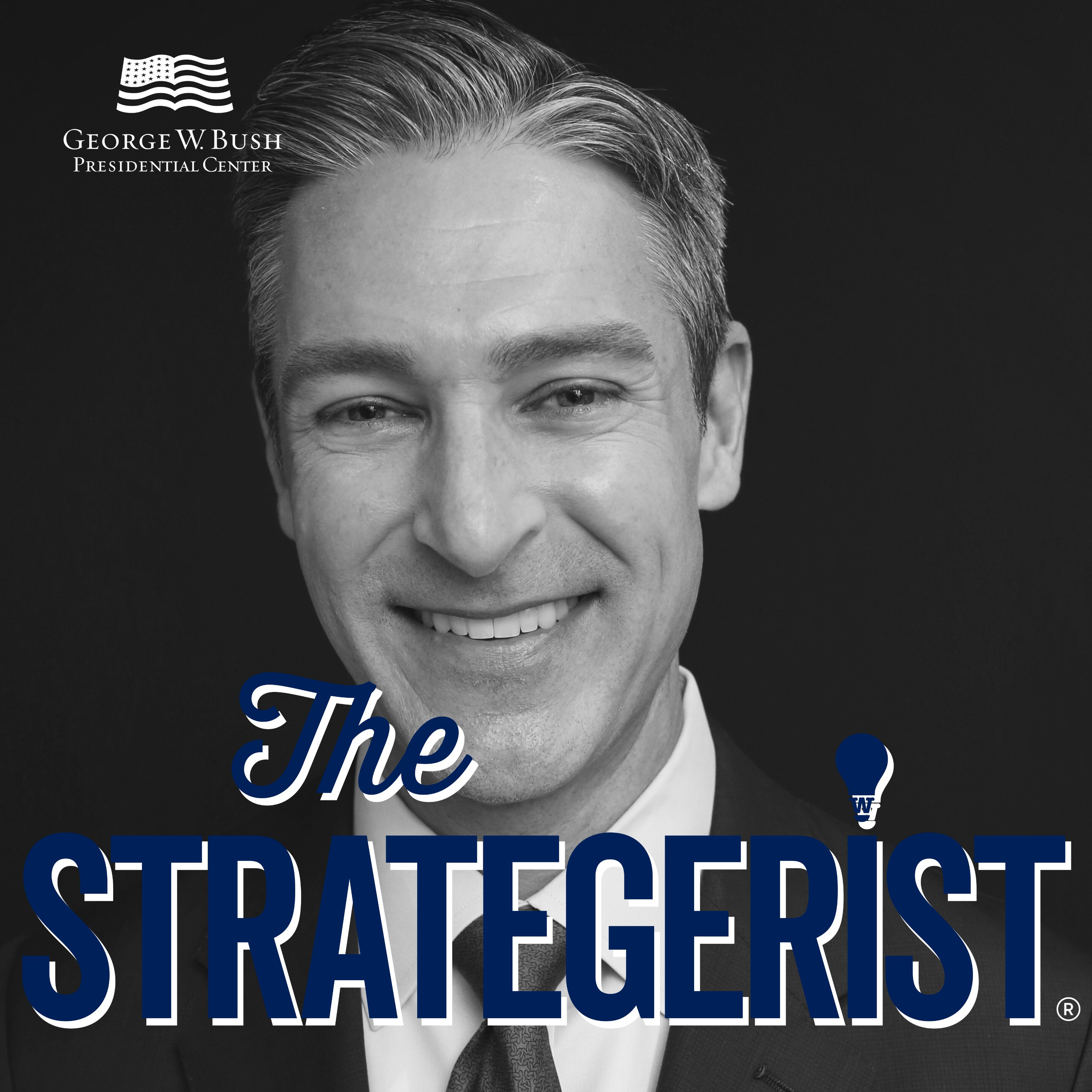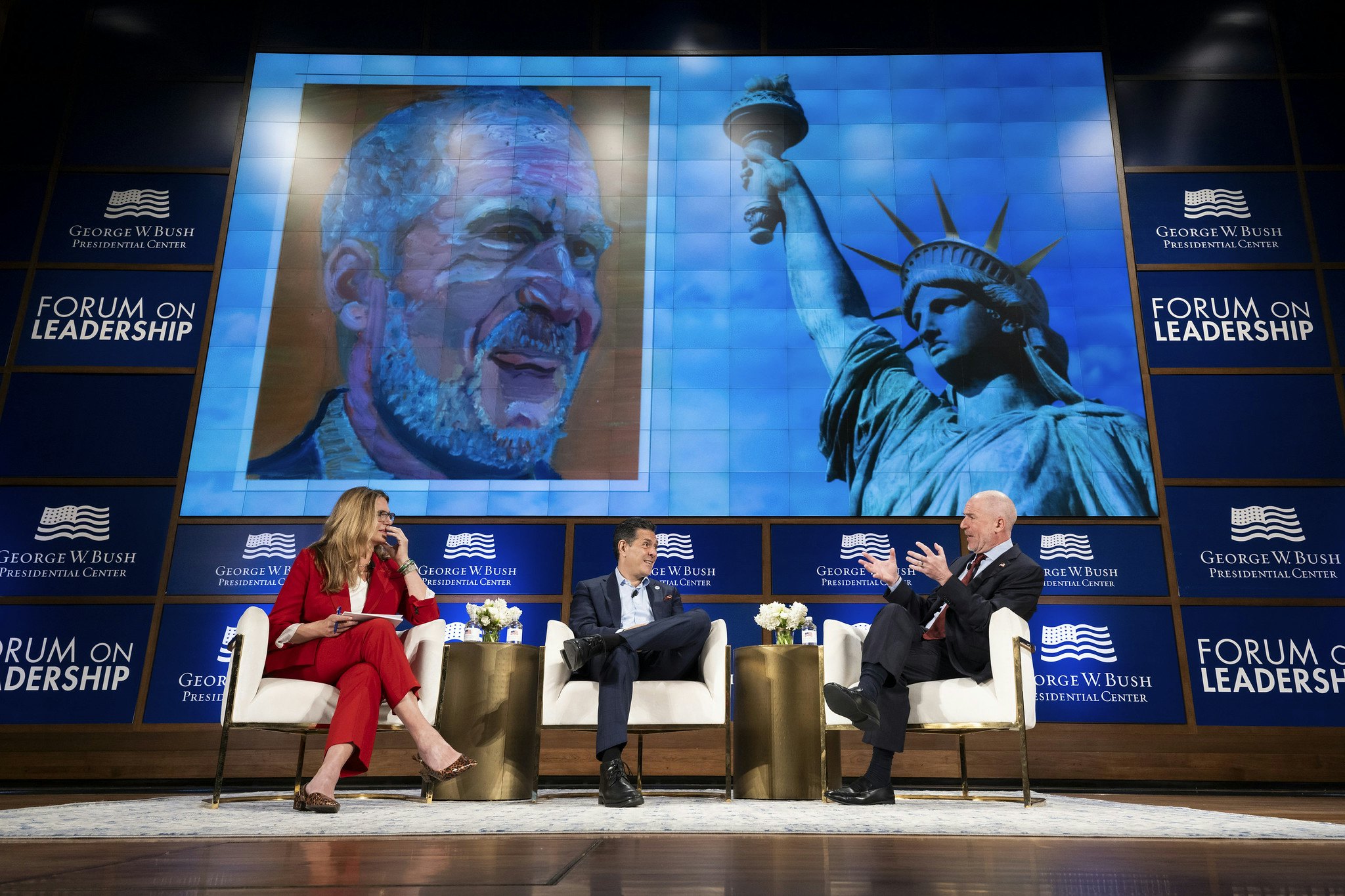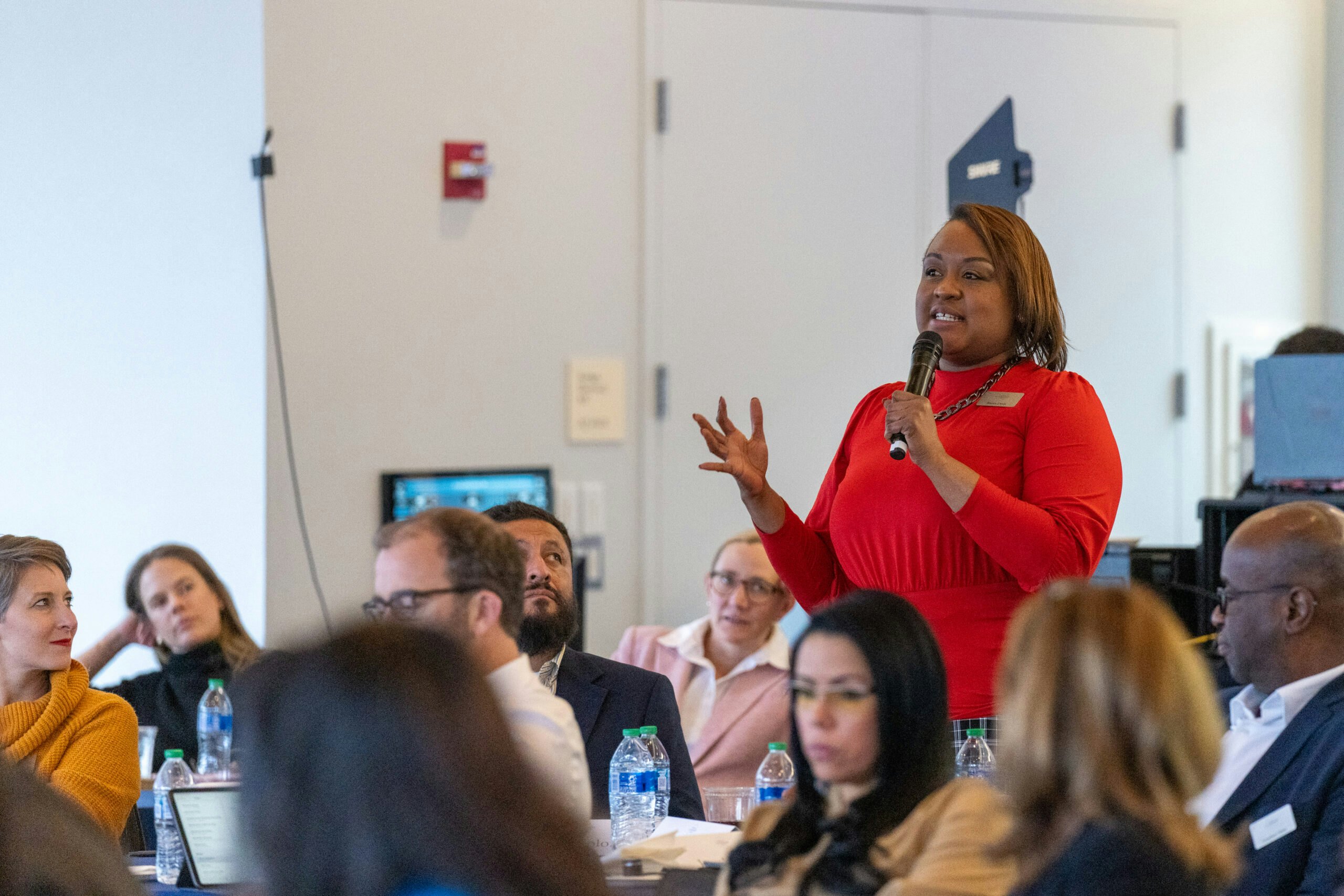In the seventh installment of Democracy Talks, Lindsay Lloyd, Bill McKenzie, and Chris Walsh look at freedom of expression in three ways: the rise of the internet as a vehicle for expression, the state of free speech on college campuses, and the challenges that face freedom of the press in the United States and elsewhere.
Freedom of expression is arguably the cornerstone of a healthy, functioning democracy. A nation demonstrates the value it places on the primacy of the individual when each person has the right to speak freely and present their views through speech, art, literature, and other means of expression.
In this segment of Democracy Talks, we look at freedom of expression in three ways: the rise of the internet as a vehicle for expression, the state of free speech on college campuses, and the challenges that face freedom of the press in the United States and elsewhere.
Below are a number of recommendations that we gleaned from listening to experts in our collection of essays and interviews. Our calls-to-action are aimed at us as individuals, civil society entities like universities and technology companies, and government institutions at home and abroad.
Big Tech
As the war in Ukraine reminds us, social media remains a powerful force for good. Ukrainians, including President Volodymyr Zelensky, have used the digital world to rally one another and keep the world informed about Russia’s invasion tactics. At the same time, Russia continues to use its own internet tools to spread disinformation about its moves in Ukraine.
These most recent examples of the duality of the internet highlight how important it is for policymakers and technology leaders in the United States and other western democracies to strike the right balance. They would greatly harm freedom of expression, as well as the free flow of information, if they employ the wrong strategies to curtail the worst aspects of social media use. At the same time, they would immensely harm their countries and people around the world if they allowed disinformation to spew across the internet.
This is no easy balance to strike, but we believe it is best left in the hands of the private sector to strike the balance. Facebook’s Oversight Board, as its co-chair Michael McConnell explains in his Democracy Talks interview, is one tech company’s attempt to find this balance. The independent board is comprised of leaders and experts who have no need to kowtow to any potential threat to their decision making. That is a good place to start.
Yet Facebook or any other tech company cannot just use such a board as window dressing. Their recommendations need enacting, or else panel members should start drafting their public resignation letters.
The private sector also can attack this challenge through innovations. Adrian Shahbaz notes how WhatsApp made end-to-end encryption standard for its more than 1 billion users. That, he says, is a greater protection of privacy than a government regulation.
That said, elected leaders and regulators alike have a role to play. One place is for Congress to continue work on revamping Section 230 of the Communications Decency Act. When written in the late 1990s, that section rightly protected the then-emerging internet from being subject to the same liability laws as traditional publishers and news organizations.
Now, it is time to reconsider that exemption since social media platforms have become a go-to source for information. That includes disinformation that autocrats and others spread. As this 2021 Bush Institute Policy Brief notes, the goal should be “finding fair and limited ways for social media companies to be held responsible for the content that appears on their sites.”
The U.S. and its democratic allies also must thwart China and autocratic nations from rewriting the rules of the internet in global forums. Shahbaz, the Director of Technology and Democracy at Freedom House, details the importance of countering this challenge. He rightly says, “If we no longer live in a world where, at least on paper, there is a commitment to freedom of expression and human rights, then the foundations of democracy will begin to crumble.”
Free Speech on College Campuses
In an illuminating exchange, Greg Lukianoff, President and CEO of the Foundation for Individual Rights in Education, and Jamal Greene, the Dwight Professor of Law at Columbia Law School, discussed the tension between free speech and inclusion. That tension seems counterintuitive, but its existence points to the importance of each of us breaking out of our bubbles at an early age. We then can know and perhaps understand differing opinions and points of view.
Free speech in a diverse, pluralistic society needs citizens to experience and engage with others, even if we find those engagements uncomfortable, offensive, or even crass. Without that exposure, we’re tempted to shutout everything and anything we disagree with because it feels alien and wrong. As Condoleezza Rice said in a recent Reimagining Democracy event: “We don’t have a constitutional right to be comfortable.”
The breaking down of bubbles is especially important for college students. As the Bipartisan Policy Center’s (BPC) Jacqueline Pfeffer Merrill puts it in her interview, Generation Z students on campuses increasingly hail from homogenous neighborhoods and backgrounds. As a result, they often lack the skills to engage with classmates with different experiences and views.
Part of having uncomfortable conversations with others on campus is the responsibility of students themselves. Yet it also is upon university administrators to create opportunities for engagements to occur as early as college orientation sessions. That way, the chances increase so that, as Merrill says, “…diversity, equity, and inclusion goes along with freedom of expression.”
Equally important, university leaders must not shy away from the inevitable controversies. The BPC task force recommends a series of sensible planning exercises for university leadership teams and faculty representatives to walk through so they will be ready for controversy. Merrill is correct: “Having controversial expression is not a sign of failure.”
Freedom of the Press
Russia’s suppression of a free press is not limited to actions it has taken to suspend independent Russian media. But Vladimir Putin’s moves certainly have underscored his disregard for a free press. Journalists like Dmitry Muratov, who won the Nobel Peace Prize last year for his commitment to independent reporting through his paper, Novaya Gazeta, understands this all too well.
So does Maria Ressa, who shared that prize with him last year. Her publication, The Rappler, remains committed to searching for the truth against serious opposition from authorities in the Philippines, her native country.
In our own hemisphere, we see an alarming challenge to freedom of the press. Seven Mexican journalists already have been murdered this year, as our Bush Institute colleague Jenny Villatoro reports in her essay about freedom of expression in Central America.
Guatemalan journalist Sofia Menchu details in her interview how authorities there attempt to suppress an independent media. She reports how government leaders use lawsuits to stifle journalists, which in part is a way to get journalists to censor themselves before publishing a story or commentary.
Fortunately, Menchu remains valiant in searching for information about how governments, businesses, and other institutions and individuals in her country operate. But she and others need leaders from President Joe Biden to members of Congress to State Department officials to speak out against attempts to crack down on a free press in Guatemala, Central America, and elsewhere. Menchu describes the need succinctly: “It’s very important for journalists to have the support of international governments and organizations so they can feel safe and supported. They can help us have freedom of speech.”
Along with speaking out, lawmakers should adequately fund organizations like the National Endowment for Democracy and U.S. Agency for International Development. Part of their democracy-building work is growing a free press around the world.
Legislators also need to provide the support that taxpayer-funded organizations like Voice of America, Radio Free Asia, and Radio Free Europe/Radio Liberty need. Then, those organizations can provide valuable and factual information to people in nations that lack uncensored news.
Here at home, we have a different kind of media problem: the decline in local newspapers around the country. Margaret Sullivan, the Washington Post’s media critic and author of Ghosting the News, describes the impact of this phenomenon, including in her hometown of Buffalo, where she once served as editor of the Buffalo News.
A number of things happen, none of them good for our democracy. One alarming result, Sullivan explains, is how people in a community become less politically and civically engaged when their local paper dies or shrinks away.
An action Congress should consider is rewriting tax laws so that newspapers could more easily become nonprofit institutions. Around the country, numerous examples exist of nonprofit news organizations providing quality, independent journalism.
Of course, all of these recommendations are aimed at the goal of enhancing the flow of reliable information. As we said at the outset, that is essential to creating and maintaining a vibrant democracy.





























